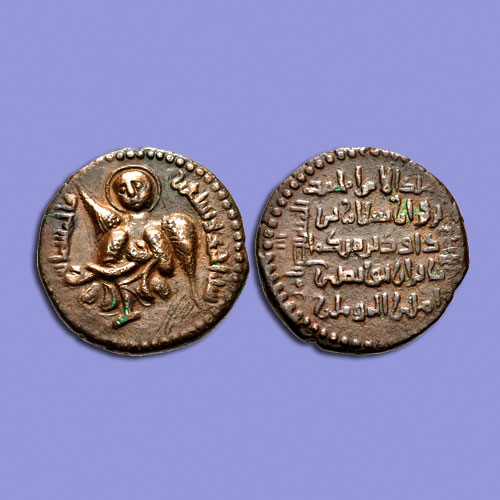Nur al-Din Muhammad of the Artuqid dynasty
2021-05-15 Sat
The Artuqids or Artuqid dynasty was a Turkoman dynasty originated from Doger tribe that ruled in eastern Anatolia, Northern Syria and Northern Iraq in the eleventh through thirteenth centuries.The Artuqid dynasty took its name from its founder, Zaheer-ul-Daulah Artuk, who was of the Doger branch of the Oghuz Turks and ruled one of the Turkmen beyliks of the Seljuk Empire. Nur al-Din Muhammad was a member of the Artuqid dynasty, and the son of Fahkr al-Din Qara Arslan (Kara Arslan).
He allied with the Ayyubid sultan Saladin against Kilij Arslan II, Seljuk sultan of Rum, whose daughter had married Nur ad-Din Muhammad. In the peace settlement with Kilij Arslan II, Saladin gained control of the Artuqid territory, even though the Artuqids were still technically vassals of Mosul, which Saladin did not yet control. With Artuqid support, however, Saladin eventually took control of Mosul as well, transferring the rule from nominal Seljuk Empire to the Ayyubid Sultanate by late 1180s. The Seljuk Empire completely disintegrated soon after that in 1194.
The above shown coin was issued under his reign. The of shows an Angel with right wing raised standing facing, holding serpent; AH date to right and left. The reverse of a coin depicts Name, title, and genealogy of Nur al-Din Muhammad in five lines; name of Abbasid caliph in left and right outer margins.
Image Source: https://www.cngcoins.com
Latest News
-
Mahatma
2024-04-25 ThuIndia Post issued a commemorative postage stamp on #LalaHansraj, also known as Mahatma Hansraj for�...
-
Berar Mint of Muhammad Akbar
2024-04-25 ThuBerar was a kingdom located in the Deccan region, with Elichpur as its capital. It was one of the Su...
-
Janma Kalnayak of Bhagwan Mahavir
2024-04-24 WedOn 21st April 2024 which was the 2550th Janma Kalnyanak of Bhagwan Mahavir Swami, PM Modi unveile...
-
Gold Pagoda of Vijaynagar Empire King Deva Raya I
2024-04-10 WedKing Deva Raya I of the Vijayanagara Empire was a patron of Kannada literature and architecture. He ...
-
Silver Denarius of Septimus Severus
2024-04-05 FriLucius Septimius Severus served as the Roman emperor from 193 to 211 AD. Severus sat on the throne o...

